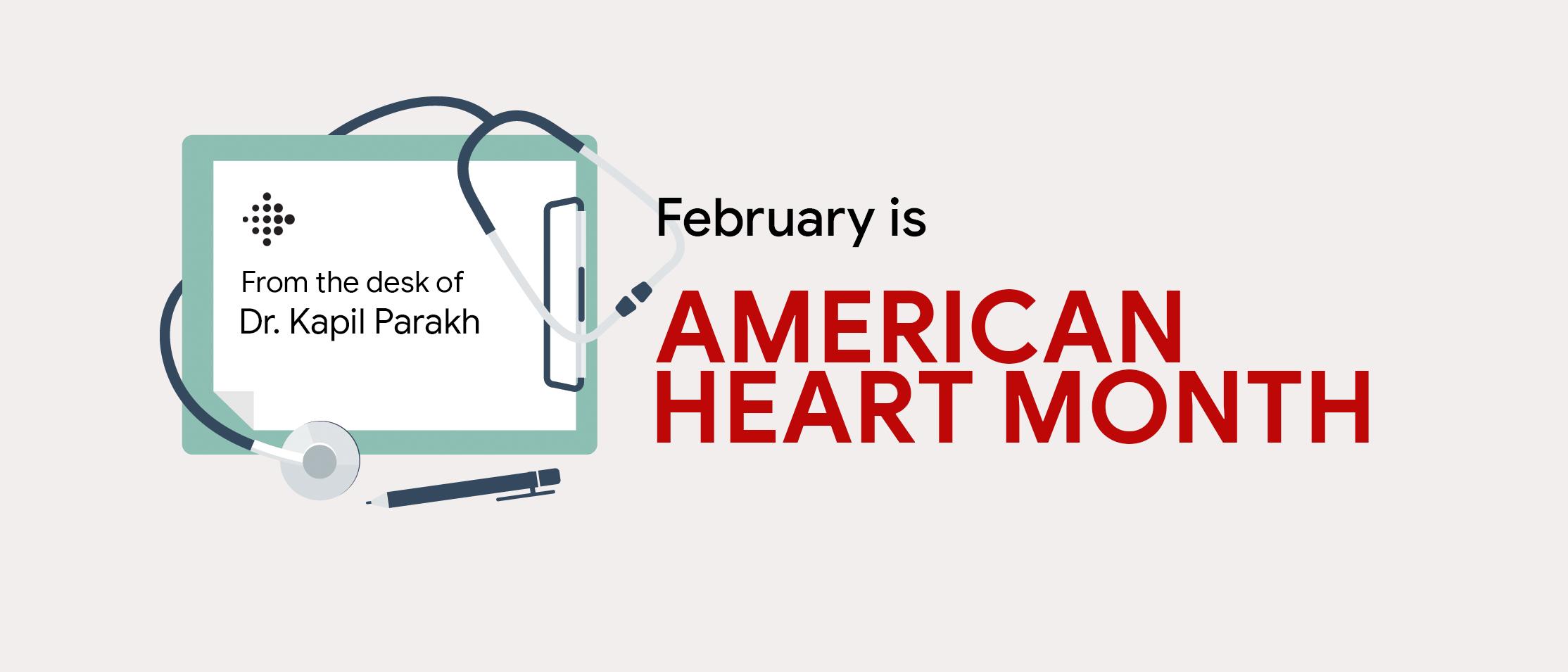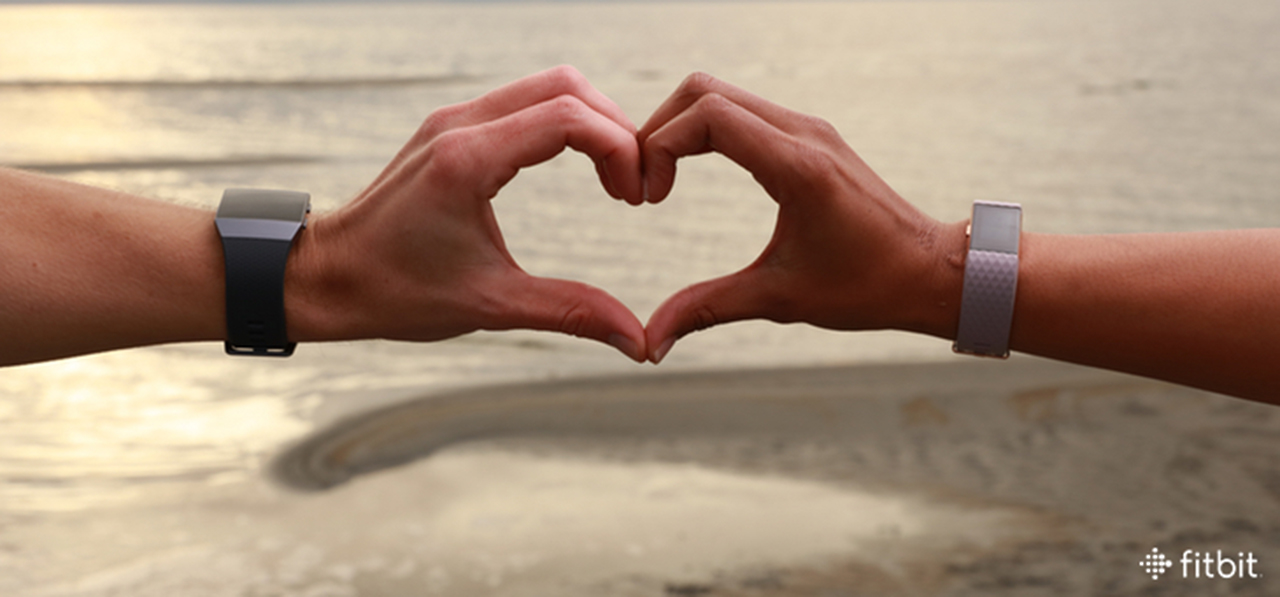It’s Heart Month, and There’s Someone We’d Like You to Meet.
It’s American Heart Month, and who better to discuss heart health than our very own Dr. Kapil Parakh, a practicing cardiologist who has pioneered partnerships with the World Health Organization and the American Heart Association, and has worked on Google search to launch products that disseminate high-quality health information to over a billion people. He currently serves as medical lead for Fitbit and is the author of Searching for Health by Johns Hopkins Press.
Join Kapil here, where he’ll lend his heart-health expertise to population health-related topics.
In 1964, President Lyndon B. Johnson declared February as American Heart Month to help raise awareness of heart disease, the leading cause of death in the US both then and now. And it’s not just the US: heart disease is the leading cause of death across the globe, taking 17.9 million lives each year. As a practicing cardiologist, this resonates with me as I see first hand the toll that heart disease takes on my patients. As we kick off this year’s heart month, I have been reflecting on the mind-body connection.
Almost two decades ago, I explored depression in patients dealing with the stress of a heart attack as part of my PhD thesis. In today’s day and age, it might be an understatement to say that we are going through stressful times. The effects of the pandemic have been far reaching but the impacts on cardiovascular and metabolic health are only just beginning to show. Studies show that stress is associated with cardiovascular disease. The pandemic brings with it both stress and also a reduction in physical activity, changes in eating patterns and sleep habits. To add to this, people are afraid to visit the doctor for risk of infection, reducing access to care. All of these trends are worse in poor communities and those of color, exacerbating health inequities. All of these things lead to increased rates of cardiovascular disease and complications. However, given the pace at which conditions like diabetes and heart disease develop, it may take years before we see the full impact of the pandemic.
While these are unprecedented times, we are also living in an era where we have access to more tools to help us understand our health than ever before – including tools that help us see how physical and emotional health go hand-in-hand. One of the most fascinating things about the mind-body connection is that what we do can influence how we feel. A systematic review found that getting more physical activity can help boost mood and ability to focus. Another meta-analysis showed that improving sleep quality leads to better mental health. Even changing the way you breathe through breathing exercises can help relieve stress. This is an area that Fitbit has invested in deeply and has contributed significantly to Fitbit’s overall support of whole-person health.
Fitbit has long been known for helping people track their physical activity, and an independent meta-analysis shows that a Fitbit device increases physical activity when added to a program. To improve sleep, Fitbit Premium provides Habits for Restful Sleep, a guided 2-week program that can help participants build better sleep habits. As sleep improves, people often find that their stress drops and they feel more productive. Fitbit Relax provides guided breathing and offers 2, 5 or 10-minute breathing sessions that may help lower blood pressure, reduce stress and lessen anxiety. Some Fitbit devices can even measure changes in the skin (called electrodermal activity or EDA) providing instant feedback about how a person’s body is reacting to the session. Finally, Fitbit allows members, teammates or friends to form communities to help with both social connectedness which can reduce isolation and improve mental health. It’s been wonderful to witness, and now be a part of, Fitbit’s evolution from step tracker to a true health and wellbeing companion.
Rates of cardio-metabolic disease were already rising around the world and the pandemic may accelerate this trend. Heart month is a reminder that we need all hands on deck to counteract this tide. Technology represents a powerful, but sometimes overlooked, tool to improve mental health and heart health.
I hope you’ll join me here again soon. In the meantime, check out my fireside chat with Dr. John Moore where we take a deeper dive into many of the stress, heart-health and whole-person health features mentioned here.
Wishing you well in your journey to health,
Kapil




